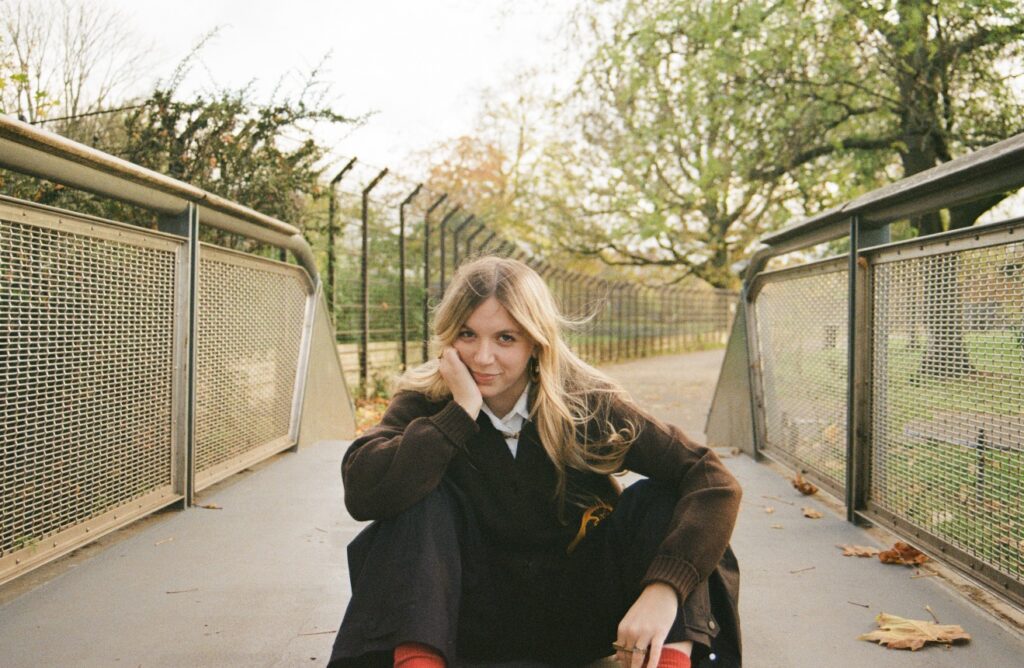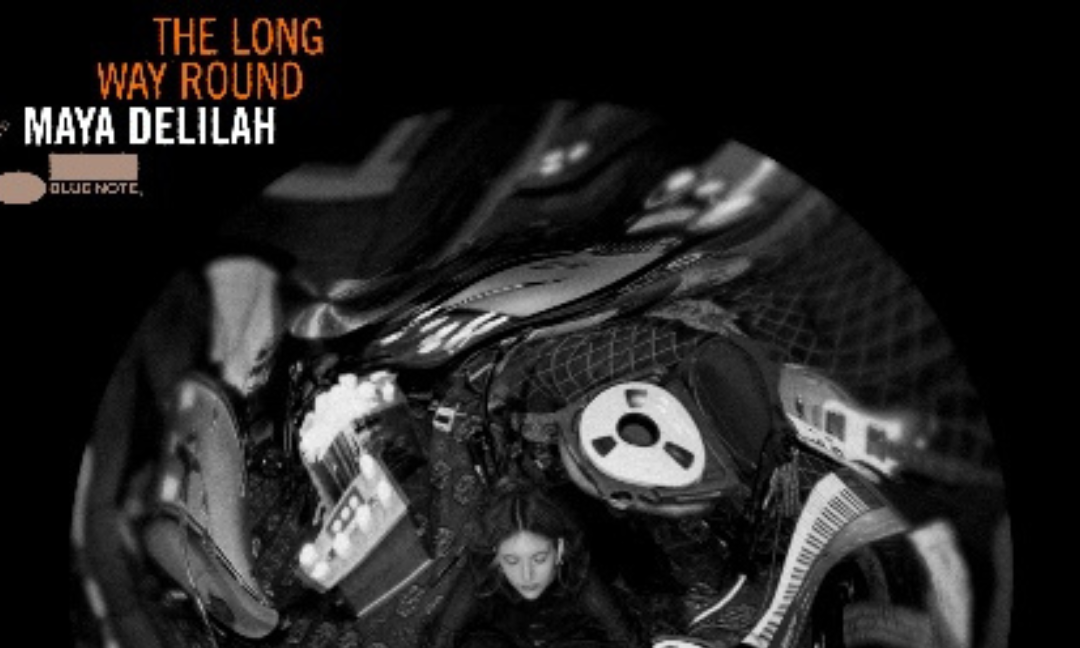Words by Eleanor Weber | Photographer: Rae Farrow

Maya Delilah’s debut album, The Long Way Round, released March 28, offers listeners a well-rounded 12-track journey stitched with nostalgia and the comfort of home. The project marks a shift from her earlier work, such as her breakthrough song “Breakup Era,” to a more full sound, one she jokingly penned as her “Nostalgia Era” in an interview earlier this month. The album draws from multiple uniquely different genres, but Delilah’s guitar playing almost acts as a string tying the entire project together. While she challenges the gaps between separate genres, her guitar is the thread that ties those edges together, anchoring the project in something unmistakably hers. There’s a lived-in feeling across the record as if Delilah isn’t just telling her story but inviting you into the living room where it was written—guiding you through the audiographical landscape she’s carefully crafted.
Delilah’s guitar work almost acts as a second voice on the album, creating a familiar resting place on each track that stitches the genre-bending album together into one cohesive project. Originally learning on acoustic with a banjo-style approach—five long nails instead of picks—she’s carried that fingerstyle over to her electric playing. “I get so much more feel and emotion out of guitar, and that’s always my aim,” she explains. “Using my fingers, I find that comes through so much more.” That emotional charge is woven through the album’s fabric, from stripped-back moments to full-bodied grooves.
Delilah’s writing process is as fluid as her genre influences. Whether vibing off a jam session or leaning into lyric-driven collaboration, she adapts based on the energy of the room. “I don’t typically write on my own—I love to do it with people,” she shares. This open-ended creative approach results in a record that resists being pinned down yet still feels cohesive through its storytelling and soul. Learning music by ear, as well as her preference to collaborate, shapes her deep connection to sound when writing. Having been diagnosed with dyslexia, Delilah explained that she finds traditional, objective musical terminology less helpful. Instead, she chases atmosphere and feeling in her creative process. As she puts it, “I want it to sound more like the rain… warmer,” a sensory-led approach that bleeds into the tone of The Long Way Round.
Nostalgia, in all its forms, plays a starring role. Whether pulling from her own childhood or channeling her friends’ memories, Delilah uses storytelling as both a mirror and a window. Her favorite track on the record, “I’ll Be There In The Morning,” encapsulates this sentimentality without slipping into sadness—it’s about comfort, safety, and showing up. She explained that she really tapped into nostalgia in all its forms when working on this project. She listened to records she grew up on and responded retroactively to old memories and experiences. Some of the tracks were even built off her putting herself in her friends’ shoes, and drawing inspiration from these experiences she was less intimate with. Nostalgia was the focus—not in a sad way, but a grateful one.
Tracks like “Squeeze” emerged from the most organic of sessions: a writing trip with her bandmates, born from a carefree jam that captured the end point of a happy day. “We weren’t taking it too seriously,” she says, “and it just came out so fast.” That blend of spontaneity and sincerity threads the album together.
Visually, the album nods to Blue Note Records with a black-and-white cover featuring vintage tape machines, a nod to half the album being recorded on tape. The analog texture matches the emotional one, grounding the music in something tactile and timeless.
The track “Maya Maya Maya” dives deep into self-reflection, offering an ode to the people pleaser in all of us. Written with an honesty that crept up on her, Delilah looks back on her younger self with compassion. It’s one of the more serious entries on the album, a reminder to hold space for yourself in a world that often demands more, something many listeners are sure to empathize with.
This strong debut album isn’t trying to be everything to everyone—and that’s exactly why it works. While Delilah once worried that the genre-bending nature of her sound might alienate listeners, she’s landed in a place of acceptance. The Long Way Round feels like a Sunday morning, like the glint of icicles on a front porch or the crunch of autumn leaves. This is an album that feels like home—warm, nostalgic, and real.

